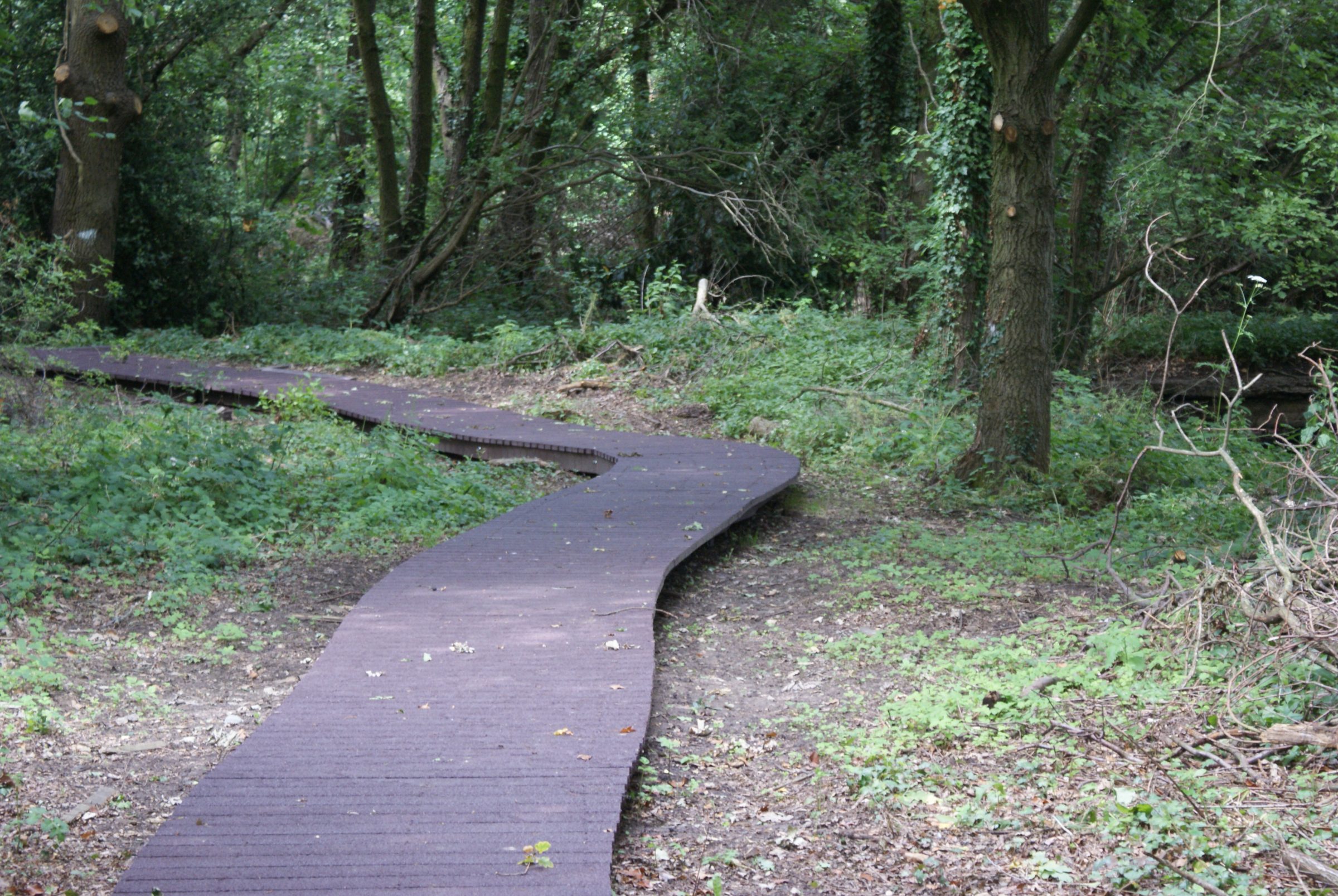
Waitrose Woodland Walkway Selects Duraplas Profiles
Waitrose staff – or partners – volunteered to lay the 1750 plastic ‘planks’ through the protected ‘Wild Riding’ Copse to complete the raised boardwalk, the result of a forward-looking partnership between Waitrose and Centriforce.
The 4.5 acre woodland lay overgrown and neglected in the middle of the 74-acre industrial estate until the purchase of a neighbouring building by Waitrose led to the discovery that the copse is a National Heritage Site, first mentioned in the Domesday book. Habitat surveys confirmed the copse is home to protected wildlife species including bats, badgers, deer and wild orchids.
The 268 metre-long and 1.2 metre wide raised Duraplas boardwalk now allows the site’s 2,400 office and warehouse workers to enjoy year-round woodland strolls in safety and comfort. Further work is planned to clear the woodland and build platform areas with seating for picnics or meetings.
“Plastics waste, including warehousing film and Waitrose ‘Bags for Life’, is routinely collected by Centriforce from our Bracknell and Aylesford distribution centres,” said Mike Walters, Waitrose Operations Director, Waste and Recycling. “Using recycled plastic products is one means by which we can come closer to being a truly sustainable business. “We are working closely with Centriforce to retain ownership of our waste by identifying and developing recycled products that we can use in our stores and distribution centres. Currently, recycled plastic waste is being used to manufacture Waitrose construction hoardings and for outdoor furniture.”
The Bracknell boardwalk has been manufactured from about 20 tonnes of HDPE post-consumer waste. Consultant ‘Environments for People’ installed the recycled plastic posts and bearers, before the Waitrose partners laid the plank-like decking to create a boardwalk which blends effectively with the natural environment.
Recycled plastic offered a sustainable, durable and maintenance-free solution that will be far easier for the partners to look after than a wooden alternative explained Hugh Roberts from Environments for People: “The copse is low-lying and prone to flooding so a wooden structure would have quickly rotted and been susceptible to algae formation, making it slippery underfoot,” he said. “At the edge of the wood, where the ground is hard, we needed a vibrating hammer to drive posts into the ground. Treated wood would have split, leading to rotting and leaching of chemicals into the ground, but the recycled plastic posts remained intact.”
Ronnie Doctor, Marketing Manager for Centriforce added: “Closed loop recycling schemes provide a demonstrable means for retailers to evidence their responsible approach to post-consumer HDPE and LDPE waste streams.
“We are keen to work with retailers to develop appropriate closed loop solutions that return recycled plastic bags, film and bottles as close as possible to the point of disposal. We are learning that a little imagination and close working relationships can deliver truly sustainable results.”
